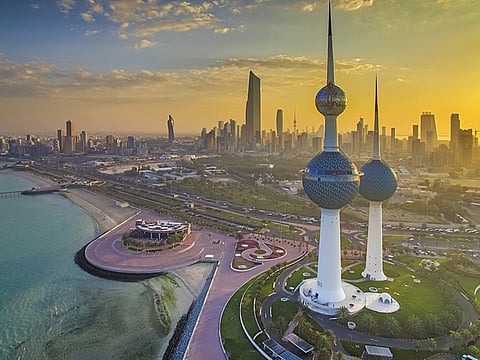Revival of mega projects heralds positives for Kuwait
Chinese investment flows into select developments is at the heart of this boost

The Kuwaiti economy has its own unique characteristics among the Gulf states on a number of issues. This would include setting aside 10 per cent of any fiscal year revenues for the Future Generations Fund. This is done prior to determining any possible fiscal surplus or deficit. In other words, deduction of a portion of revenue is not tied to final results of the fiscal year. Clearly, this practice is designed to ensure that no single generation benefits from the country’s oil wealth at the expense of others.
On the other hand, the well-being of Kuwait economy is exceptionally dependent on the petroleum sector. Oil accounts for nearly 88 per cent of budget revenues, 85 per cent of exports and 40 per cent of GDP. Other GCC member states are less dependent on oil.
Another curious aspect relates to the job market, as the majority of national work in governmental institutions. On a positive note, the practice reflects the state’s assumption of responsibility for providing proper job opportunities where possible. Conversely, this fact necessitates allocation of a significant proportion of budget expenditure in favour of current expenses like payment of salaries and benefits. This whole exercise places a burden on public finance during more testing times.
Kuwait’s budget for fiscal year 2017-18 was prepared with expenditures of $65 billion (Dh239 billion) against revenues of about $44 billion. Unlike other GCC member-states, Kuwait’s fiscal year runs from April to March.
Reflecting the adoption of conservative policies, the budget assumed an average price of $45 per barrel for oil, certainly below prevailing prices in the international markets. This explains the possibility of boosting oil revenues and thus reducing the level of fiscal deficit during the fiscal year ending in March 2019. Other Gulf states have assumed a higher average for oil prices, like $55 per barrel in the case of Bahrain.
Airport expansion
Kuwait lags the rest of the GCC in terms of performance in development indices. Kuwait is in 65th spot in attracting overseas talent.
But there are promising prospects for the Kuwaiti economy. These relate to embarking on developing major projects such as the expansion of the airport as well as the possibility of enticing Chinese investments on Kuwaiti islands. Much to their credit, Kuwait authorities are doing their best to capitalise on the country’s economic potential.
China has expressed interest in developing the Silk City and Boubyan Island. Certainly, the investments will be in the billions of dollars. The next step involves feasibility studies to set up projects like a regional hub for distributing Chinese-made goods. The renewed Chinese interest in such large-scale schemes was put on display during a recent conference. Understandably, China has experience in assuming mega projects in Asia and Africa.
Separately, work is in progress for the construction of Terminal 2 at Kuwait International Airport, to accommodate 13 million passengers a year in the first phase. Limak, a construction company from Turkey, has the $4.4 billion project, the biggest won by a Turkish firm abroad. Kuwait has the capacity to be a successful regional economy and a model nation among Arab countries for promoting democratic institutions.
— Dr Jasim Ali is a Member of Parliament in Bahrain.



